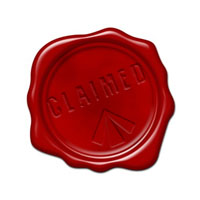Researchers who have claimed this convict
There is currently one researcher who has claimed James Cawsey
- Researcher (david cawsey)
|
 |
Biographies
James Cawsey of Barnstaple first got into trouble with the police in 1843, when only 10 years old. His delinquency continued for the next 5 years.
He was already working in the lace factory when he appeared before the magistrates on October 25th 1843 together with two other boys , charged with larceny . The magistrates admonished the parents, and cautioned the boys “ to abandon the course of vice which they had so prematurely commenced, which, if persisted in, would probably bring them to an ignominious end.”
In June 1844, he was imprisoned for a month for stealing gooseberries. He had hardly been released when he returned to fruit stealing. In August he was charged with stealing apples and only a week later a separate charge of stealing pears was added to his indictment He was sentenced to six weeks' imprisonment, to hard labour, and to be twice privately whipped. A press report described James (inaccurately) as “a very little fellow not more than 8 or 9 years old”,
On 15th July 1846 he was again convicted for stealing apples and summarily punished by a month's imprisonment. In December, 1846, together with four other boys, James was charged with robbing a shop and was “committed” for 14 days. In July 1847, James, with David Eames, “two notoriously bad boys belonging to Derby”, was charged with assaulting two old women. They were discharged with a caution because “they had been severely chastised for their fault”.
Barnstaple had had enough of James Cawsey, and the opportunity of getting rid of him came in July 1848 when he was one of seven boys who raided an orchard. He was rushed before the Quarter Sessions only two days later.
The Recorder began with sarcasm at the expense of the prisoner - “On Sunday last some foolish person thinking perhaps that it was a misfortune that they and the Recorder should have nothing to do, had chosen to put himself in a position in which it would become their duty to take cognizance of his conduct. ”
In the trial which now followed, James had no representation; he was on his own, facing the Recorder and five Justices, the Grand Jury, the Petty Jury, the hostile witnesses, and the court officials. There were oddities in the hastily prepared case against him, as the jury discerned; he was accused of stealing “a peck” of apples, a ridiculously large amount; and no stolen apples were discovered. The jury hesitated and were split until the Recorder said “they had better agree”, having himself previously suggested no doubt in the case. So James was sentenced to transportation – and there seems to have been no effort to trace the other six boys.
James Cawsey was first transferred to Millbank Prison. Then, on the direction of the Secretary of State, he was sent to Parkhurst prison on the Isle of Wight to become a "Parkhurst Boy". He was admitted to Parkhurst on 8th November 1848 as Prisoner No. 909.
He remained at Parkhurst until his compulsory exile to Australia in July 1851. He was one of a group of 30 Parkhurst Boys who embarked on the frigate "Minden" at Cowes on July 7th 1851.
Their destination was the “Swan River Colony”, which was to become Western Australia.
The Minden reached Fremantle in October, and all those transported obtained their "Ticket of Leave" on disembarkation on 14th October 1851. They are all included in convict records, together with physical descriptions. James Cawsey was described as 5‘ 01⁄2“ tall, ‘stout’, with sandy hair, an oval freckled face with blue eyes. He had lost the first joint forefinger on his right hand.
James was employed as a bricklayer on Public Works in Western Australia and he obtained a "Conditional Pardon" in March 1854. He almost certainly remained a single man. He seems to have become deranged, and was admitted to Fremantle Lunatic Asylum with dementia on 19th November 1867, and he remained there under treatment, probably until he died “suddenly in a fit of apoplexy” on 19th June 1869.
Submitted by Researcher (david cawsey) on 12 May 2023
|
Disclaimer: The information has not been verified by Claim a Convict. As this information is contributed, it is the responsibility of those who use the data to verify its accuracy. Research notes
There are currently no research notes attached to this convict. Sources
- The National Archives (TNA) : HO 11/17, p.158
|

